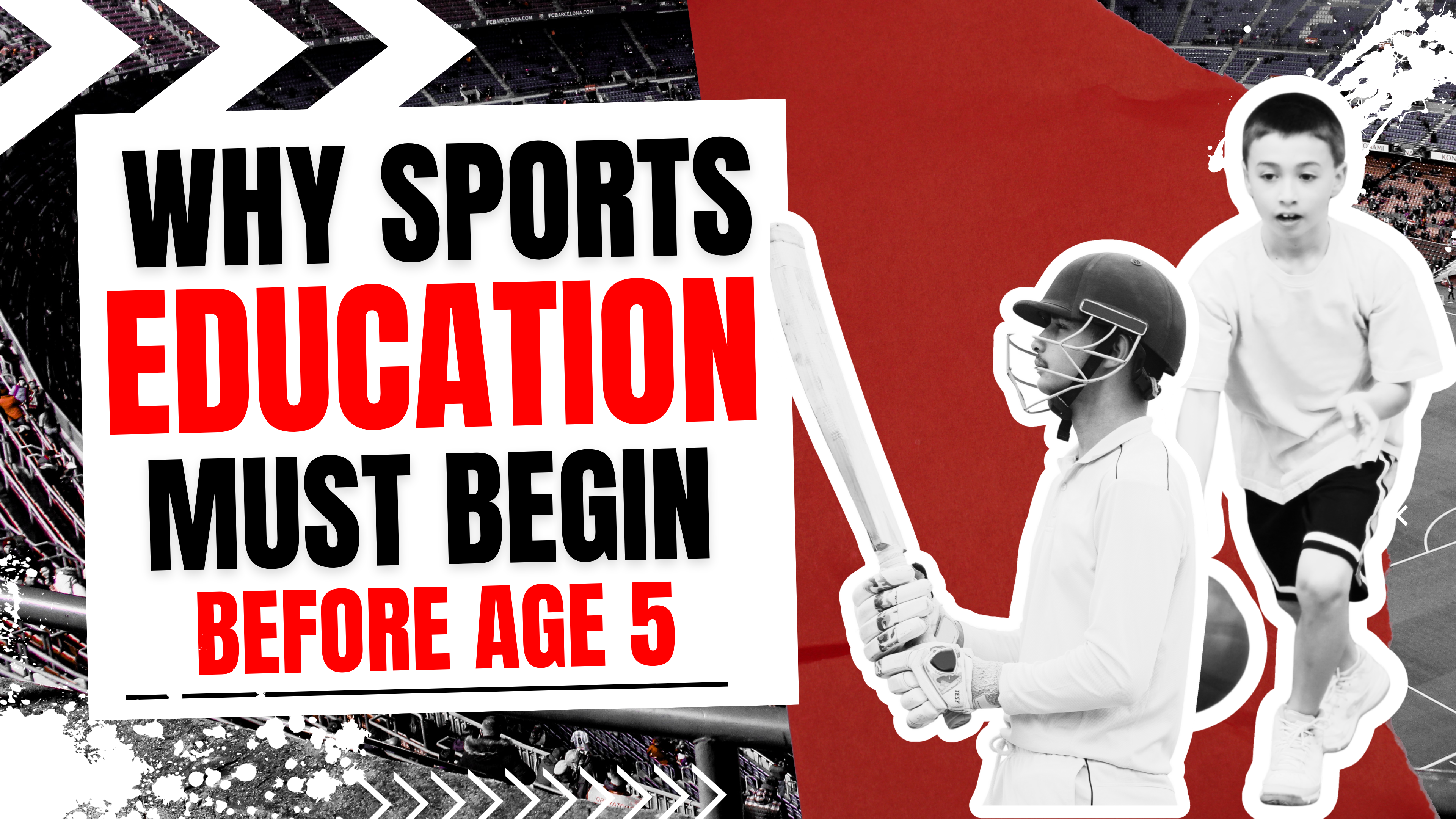Introduction: The Foundation Years Matter Most
The early years of a child’s life—especially before the age of 5—are the most critical for shaping their physical, emotional, and social development. These years form the foundation upon which lifelong habits, skills, and confidence are built. While parents often prioritize academics, language skills, or creative arts during this period, sports education at an early age is equally vital.
Sports for preschoolers are not about competition or athletic excellence; instead, they focus on motor skills, social interaction, confidence building, and instilling the joy of movement. Research has consistently shown that children who engage in sports before the age of 5 are healthier, more active, and often perform better academically later in life.
So, why should sports education begin before age 5? Let’s explore in detail.
1. Brain Development and Motor Skills
Children under the age of 5 experience rapid brain development. This is the stage when the brain is most receptive to learning new patterns, skills, and behaviors. Sports activities during this time significantly impact neuromuscular coordination and motor development.
-
Fine motor skills: Activities like throwing a ball, hopping, or balancing improve hand-eye coordination.
-
Gross motor skills: Running, jumping, and climbing help in strengthening muscles and building stamina.
-
Cognitive growth: Sports involve strategy, memory, and decision-making, all of which stimulate brain function.
For example, simple preschool sports programs like mini soccer, dance, or obstacle races enhance both physical and mental agility simultaneously.
2. Building Healthy Habits for Life
One of the most overlooked benefits of introducing sports education early is the development of healthy lifestyle habits. Children who are introduced to structured physical activities at a young age are less likely to lead sedentary lives later on.
-
Active lifestyle: Preschool sports programs teach children to associate fun with movement.
-
Prevention of obesity: With rising concerns about childhood obesity, starting sports early ensures kids stay fit and active.
-
Discipline and routine: Regular participation in activities introduces structure and the importance of routines.
When children learn to love physical activity before age 5, the habit often continues naturally into their teenage years and adulthood.
3. Emotional and Social Benefits
Sports aren’t just about physical growth; they are a crucial tool for emotional and social development. Preschool sports programs are designed to foster teamwork, empathy, and resilience.
-
Teamwork: Even basic activities, like passing a ball to a partner, encourage sharing and cooperation.
-
Resilience: Sports teach children to try again after failure, developing persistence and patience.
-
Confidence building: Small achievements—like running a short race or completing a game—boost self-esteem.
For shy or introverted kids, early participation in sports is a wonderful way to develop social connections and overcome hesitation in group settings.
4. Academic Readiness through Sports
Many parents wonder, “If my child spends more time on sports, will it take away from academics?” The reality is the opposite. Sports education actually enhances academic readiness.
Here’s how:
-
Concentration: Activities like yoga or martial arts for kids improve focus and attention span.
-
Problem-solving skills: Sports involve strategy and quick decision-making.
-
Memory boost: Physical activity increases blood flow to the brain, improving cognitive performance.
-
Stress reduction: Sports reduce anxiety and hyperactivity, creating a calm mindset for learning.
In short, sports at an early age lay the foundation for both academic and life success.
5. The Role of Preschool Sports Programs
Structured preschool sports programs are designed specifically for children under the age of 5. Unlike traditional sports training, they focus on:
-
Fun-based learning: Activities are playful, not competitive.
-
Age-appropriate exercises: Programs are designed with children’s limited stamina and motor abilities in mind.
-
Safety: Qualified instructors ensure safe participation without injuries.
-
Holistic growth: Programs often combine physical, mental, and emotional development.
Examples of preschool sports programs include toddler yoga, kids’ gymnastics, dance, swimming, and non-competitive team sports.
6. Why the Age Before 5 Is Critical
Starting sports after age 6 or 7 still has benefits, but the maximum impact on brain and body development occurs before age 5. During this stage:
-
Neural connections form rapidly: Sports strengthen pathways between the brain and muscles.
-
Flexibility is highest: Kids can adapt easily to movements and coordination.
-
Confidence is easier to instill: Habits formed early become part of a child’s identity.
Delaying sports education often means children have to “unlearn” sedentary habits or lack of coordination. Starting early ensures that sports become second nature.
7. Practical Tips for Parents
If you’re a parent wondering how to start, here are some easy steps:
-
Start small: Introduce 15–20 minutes of physical play daily.
-
Enroll in programs: Choose age-appropriate preschool sports programs near you.
-
Be a role model: Kids imitate parents. Show enthusiasm for exercise.
-
Make it fun: Avoid pressure or strict rules. Keep the focus on enjoyment.
-
Balance: Allow free play alongside structured programs.
8. Addressing Common Concerns
-
“Is it too early?” – No, sports at this age are not about competition but about movement, coordination, and fun.
-
“What if my child doesn’t like it?” – Try different programs until you find one your child enjoys.
-
“Will it cause injuries?” – Age-appropriate programs with trained instructors are designed to be safe.
Conclusion: Start Early, Stay Strong
The years before age 5 are a golden window of opportunity. By introducing sports education early, you are not just teaching your child how to kick a ball or jump a rope—you are shaping their brain, body, confidence, and future lifestyle.
Sports at this stage create a ripple effect that lasts a lifetime: healthier bodies, sharper minds, better emotional resilience, and stronger social skills.
In short: Sports education must begin before age 5—not to create athletes, but to create well-rounded, confident, and active individuals.

